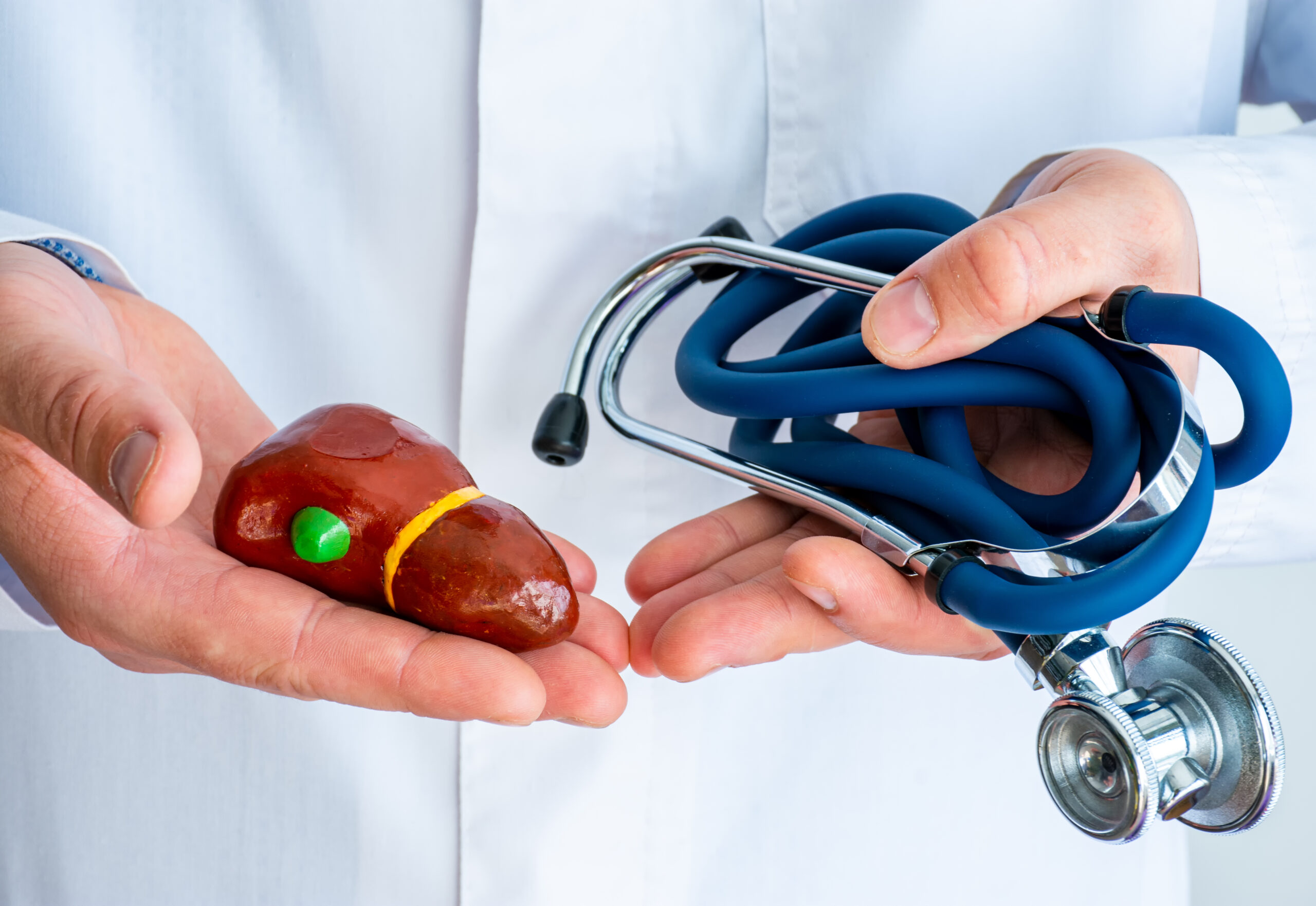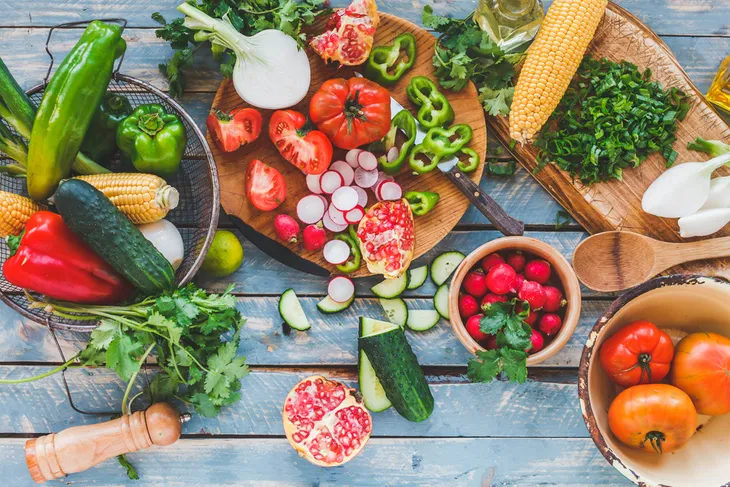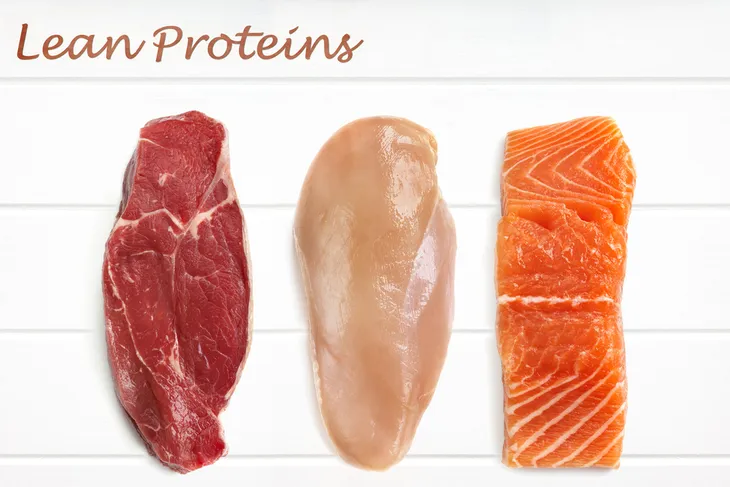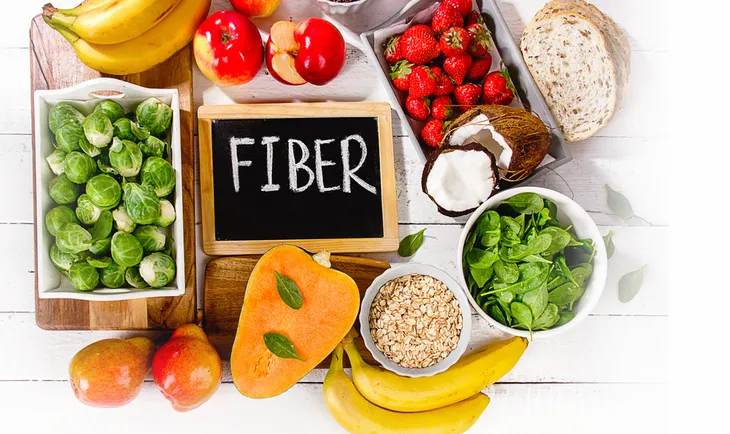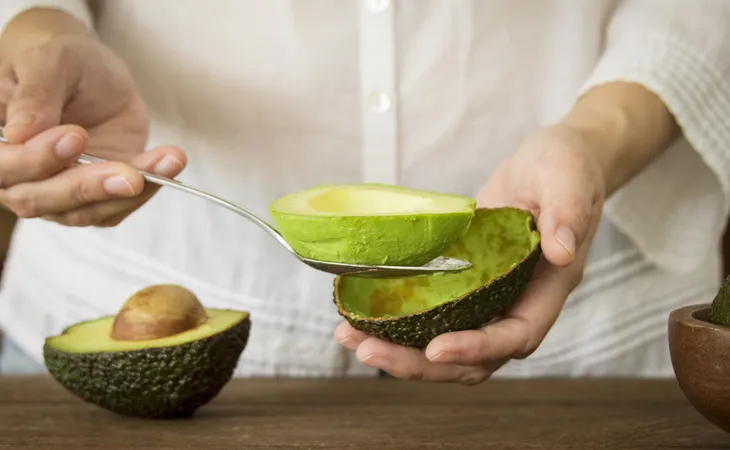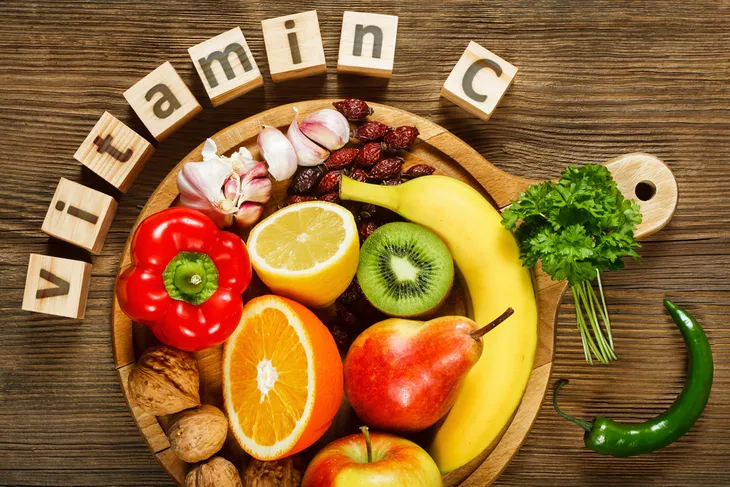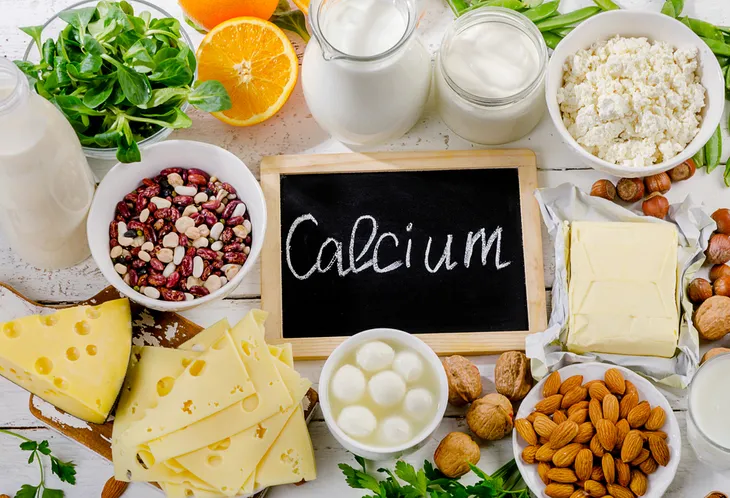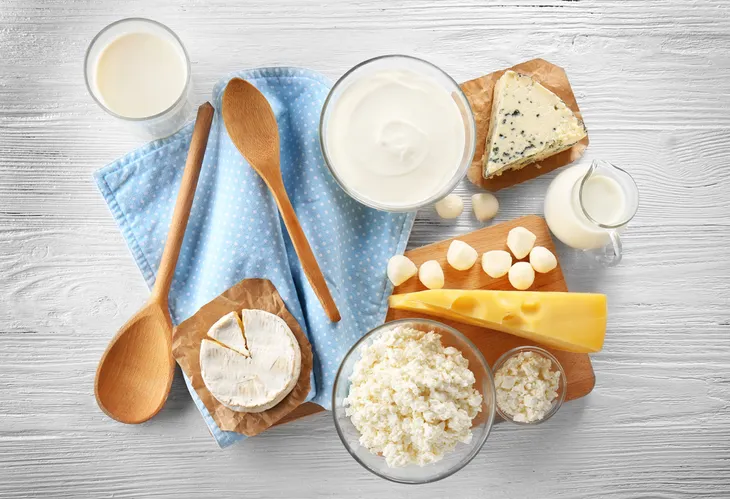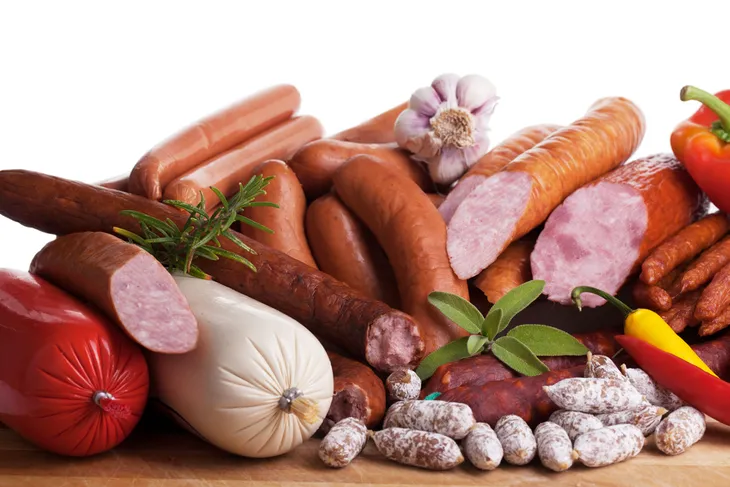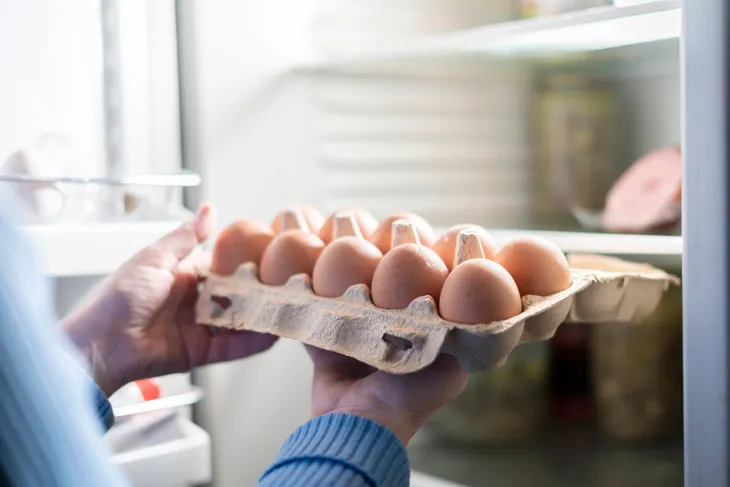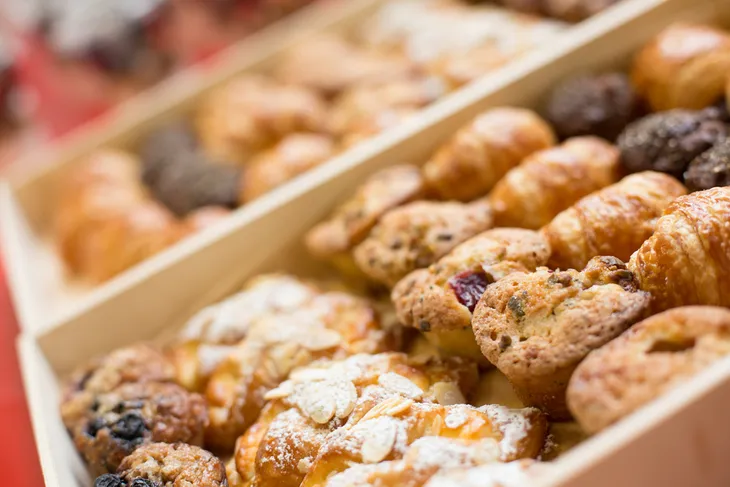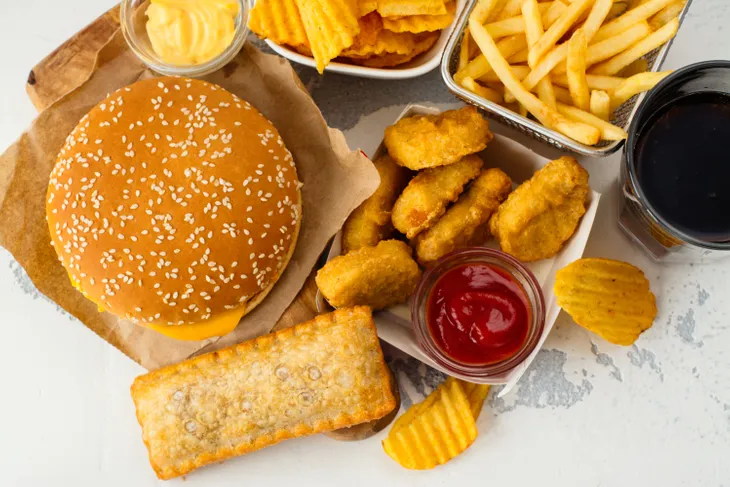For the many Americans who suffer from gallbladder issues on a daily basis, it’s important to adopt healthy eating habits with a special focus on foods that won’t intensify their condition. After all, the side effects of gallbladder problems can range from serious discomfort (like loss of appetite) to intense pain (nausea, vomiting, and abdominal cramps).
People with gallbladder problems must learn about the foods that make their condition flare up and become a bigger problem, as well as what foods might help improve their condition. Unfortunately, the foods to steer clear of are some of the most popular menu items out there, from dairy to fried chicken. Many gallbladder issues can be tied to difficulty properly processing the fat in many of America’s favorite foods.
To better understand how to manage any gallbladder issues, here’s a look at what foods are considered good for the gallbladder and which to avoid in the future…
Think you may have a gallbladder problem? Try Dr. Berg’s Gallbladder Cleanse – an Amazon 4.5+ star bestseller with over 1,150 consumer ratings. (As an Amazon associate, this site earns from qualifying purchases).
Want diet & nutrition content delivered straight to your inbox? Sign up for our exclusive diet & nutrition newsletter!
Best
Lots of Fruits and Vegetables
We should all be eating lots of fruits and vegetables to ensure good health, but for someone with gallbladder issues, these foods are incredibly important. In fact, Healthline notes that eating lots of fruits and veggies is one of the best ways to improve and protect the gallbladder’s health. This is because most fruits and vegetables contain lots of nutrients and fiber, both of which are essential to this organ.
Be sure to eat a wide variety of these foods so that you get as many different nutrients as possible, says Medical News Today. Some of the best options are fruits high in vitamin C, as well as avocados which are praised for their potassium and healthy fat content, says Reader’s Digest. When it comes to vegetables, there are plenty to choose from. Some of the best options are beets, dark leafy greens, bitter greens like okra, endives, broccoli rabe, and bitter artichokes.
Lean Protein
Protein is good for the gallbladder, but you’ll want to make sure that you’re getting it from lean sources like white meat foods, fish, and plant-based proteins like beans. These types of proteins will relieve the gallbladder of any extra stress. “Fats can add stress to the gallbladder and so it is important that proteins in the diet be as lean as possible,” writes Medical News Today.
Plant-based proteins are great because they’re super lean and usually provide lots of fiber. According to Healthline, “it’s thought that eating more plant-based protein could also help prevent gallbladder disease.” The source advises loading up on foods like “beans, nuts, lentils, tofu, and tempeh” instead of eating red meat or as a swap for red meat once in a while.
Fiber
Fiber has so many great benefits on the body. Not only does it help keep things moving along naturally, but it also helps balance the bacteria in our gut and keep us feeling full for longer periods of time which assists in weight loss. All in all, fiber plays a major role in maintaining a healthy digestive system.
“Fiber in its various forms can help to keep a person feeling full for a longer period of time, feed healthy bacteria in the gut, and add bulk to the stool,” writes Medical News Today. The source also points out that fiber is great for the gallbladder because it helps remove toxins from the body.
Healthy Fats
Healthy fats are all the rage right now in the health and food industry. A lot of this is thanks to the growing fondness of avocados. This is great news for the gallbladder because healthy fats help reduce the risk of gallbladder problems.
“Polyunsaturated fats such as omega-3 seem to help keep the gallbladder healthy and reduce the risk of gallbladder problems,” writes Medical News Today. “These fats are commonly found in cold-water fish, nuts such as walnuts, seeds such as flaxseed, and oils from fish or flaxseed.”
Vitamin C
In addition to eating lots of vitamin C rich foods, you should load up on calcium (which we’ll get into more later) and B vitamins because they are also good for the gallbladder, says Healthline. It seems that people who have higher vitamin C levels in their blood experience less gallbladder problems, says Medical News Today.
Aside from oranges, where can we get vitamin C? Well, for starters, vitamin C is actually present in a lot of different fruits and vegetables. “Vitamin C is easily obtained by eating a varied diet containing many fruits and vegetables,” writes the source. Another source is supplements, but they aren’t as healthy. “It can also be found easily as a supplement in most markets, but supplements do not offer the same health benefits as getting the nutrient from food.”
Calcium
From the time we were young, we’ve been told to consume calcium to build strong bones, but it’s also important for gallbladder health. Medical News Today says the best food sources of calcium are dark, leafy greens like kale, as well as sardines and even broccoli. Of course, another huge group of foods high in calcium are dairy products. The only problem with these is that they often come with a lot of fat content too, mainly from saturated fats, explains the source.
To avoid the high fat content, try consuming dairy from alternative plant milks “that are fortified with calcium, such as almond or flax milk, are higher in healthful fats and lower in saturated fats and may still provide ample calcium.”
Worst
High-Fat Dairy Products
The gallbladder is responsible for storing and excreting bile that assists in the digestive process. When someone experiences problems with their gallbladder, it usually involves difficulty breaking down foods, especially those high in fat. The result can be anything from painful abdominal cramps to upset stomach and vomiting.
If you’re having problems with your gallbladder, you should specifically avoid high-fat dairy products, like ice cream, cheese, yogurt, sour cream, cottage cheese, and homogenized milk. Avoiding these foods can help your gallbladder effectively manage its role in the digestive process and prevent painful or uncomfortable symptoms. Of course, if you can find the low-fat equivalents of these foods, you may be okay — to be sure, speak with your physician and dietitian to discuss best practices.
High-Fat Meat Products
If you’re dealing with the painful and uncomfortable side effects of a gallbladder condition, such as gallstones, it’s wise to stay away from any foods that are high in fat. That means keeping your distance from meat products that are naturally high in fat, such as certain cuts of beef, pork, and chicken. You should also avoid processed meat products that are high in fat, such as sausage, hot dogs, and burgers. Canned meats, like canned ham and spam, should also be left off your grocery list.
Instead, look for lean meat products, like fish and turkey. Skinless chicken breast is also a viable option. Tofu is an excellent alternative to meat that can help you meet your protein requirements.
Eggs
When you think of popular breakfast foods, it’s hard to look past eggs. They’re a versatile and delicious breakfast option, whether you like them scrambled, fried, or poached. Eggs are also rather nutritious, packing lots of protein and choline, which can help in brain functionality. Unfortunately, they’re also rather high in fat, which can present serious problems to people dealing with gallbladder issues, like gallstones.
The good news is that there are options for people dealing with gallbladder conditions. If your problem is mild or moderate, you may be able to consume eggs that are poached because this cooking process is typically lower in fat. Even if your condition is more serious, you should be able to eat egg whites, which contain much of the protein of regular eggs.
Baked Goods
There’s no denying that Americans loved their baked goods. Cookies, muffins, cupcakes, pie, cake — they’re all major parts of the American dining experience. Hardly any American enjoys a birthday without cake, a July the Fourth without pie, or a holiday season without shortbread cookies.
Unfortunately, baked goods, whether made at home, the local bakery, or in a factory somewhere, are almost always high in saturated and trans fats. This makes them a major no-no for people suffering from gallbladder conditions, as the inability of the gallbladder to properly process fat can lead to discomfort and pain. If you’re dealing with a significant gallbladder condition, such as gallstones, opt for low-fat baked good options or keep your distance from baked goods altogether.
Fried Foods
Upon receiving a diagnosis involving a gallbladder problem, one of the first things you should learn is that you need to avoid high-fat foods. This is because most gallbladder problems involve issues related to the organ’s ability to properly process fat.
If you want to avoid painful symptoms like an upset stomach or abdominal cramps, it’s best to avoid fried foods, especially deep-fried favorites like donuts, french fries, fried chicken, chicken-fried steak, onion rings, pastries, etc. It may also be advisable to keep your distance from foods that have been sautéed or fried in butter.
Restaurant Foods
Generally speaking, restaurants intend to make food that tastes good and is fun to eat. Rarely do restaurants make an effort to produce healthy foods, unless this is a key part of their brand identity. Instead, most will use unhealthy ingredients, like butter, lard, and sugar, to create a unique flavor experience for their customers.
Unfortunately, this can be a serious problem for people with gallbladder issues. The best approach is to avoid eating at restaurants unless you know they’re capable of preparing foods that you like without using high-fat ingredients. In any case, don’t hesitate to ask your server for information about the food you’re thinking about ordering. Be sure to inquire about the way it’s prepared and the major ingredients.
Think you may have a gallbladder problem? Try Dr. Berg’s Gallbladder Cleanse – an Amazon 4.5+ star bestseller with over 1,150 consumer ratings. (As an Amazon associate, this site earns from qualifying purchases).
